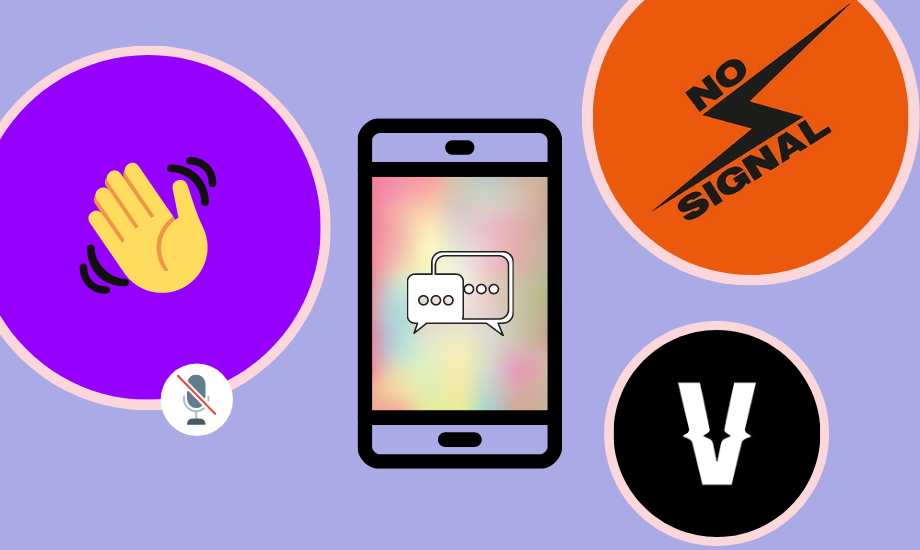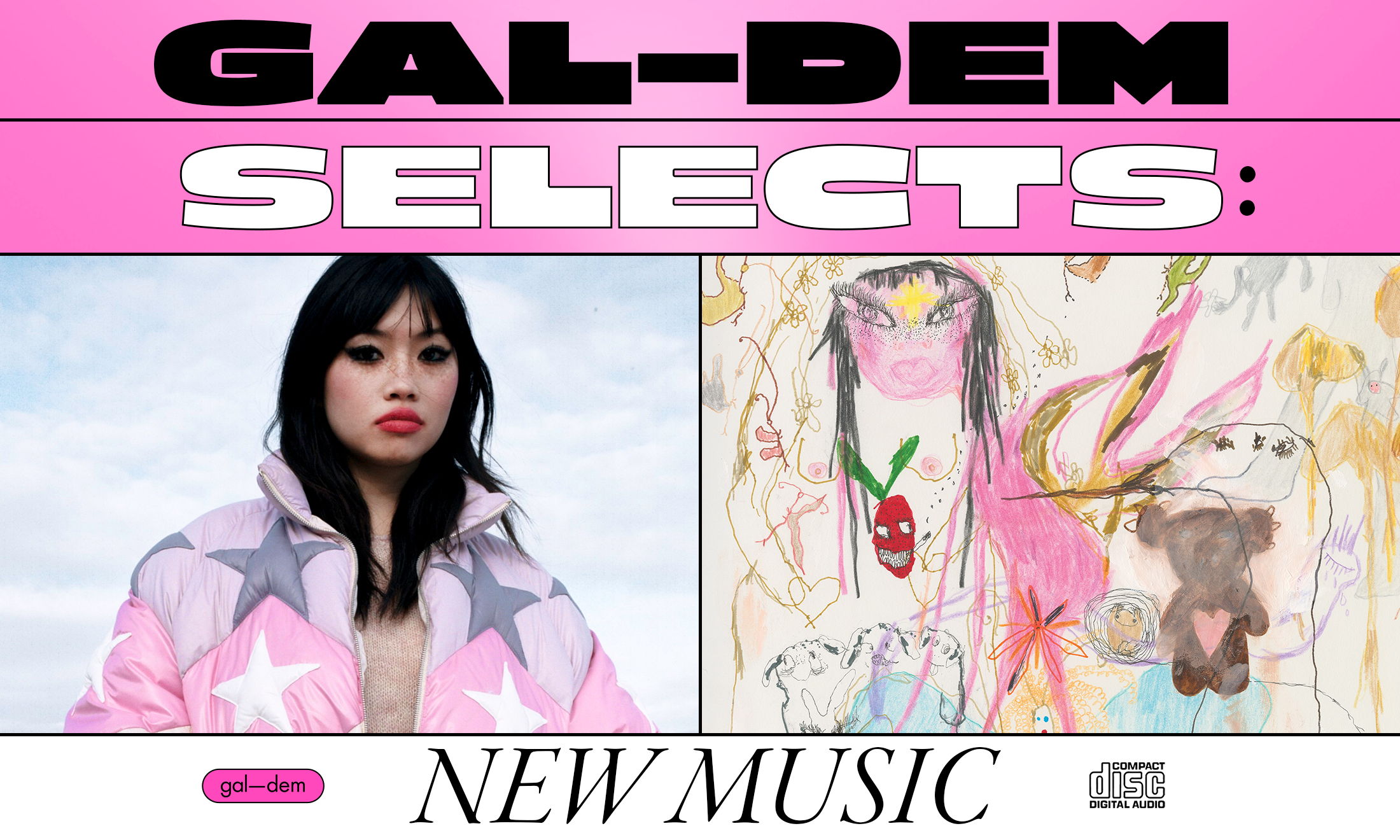How Clubhouse and other online communities are leading Black music discourse
In a time when we can't have gigs or IRL conversations about records we love, Makua Adimora examines how online communities have given space to champion Black music discourse.
Makua Adimora
08 Jan 2021

Canva
Clubhouse, Verzuz, No Signal – by the tail-end of 2020, it was an inescapable truth that conversations around Black music were being driven by these online communities.
For decades, community has been a fundamental aspect of our experience with music, creating an avenue to unite people and form bonds that might not exist otherwise. For the most part, this sense of community has usually banked on human interaction – but not since 2020. Pandemic-induced lockdowns and social distancing laws have drastically reduced physical interaction and, accordingly, altered the way we experienced music. We no longer get to feel the exhilarating rush of moshing with strangers or hour-long, enlightening conversations over coffee with people you met at the record store.
That’s always been the beauty of the communities formed through music: finding like-minded people who could turn into your tribe. Lately, though, in the absence of IRL communities, we’ve turned to online spaces as our medium for music discourse.
This isn’t necessarily a new thing. Music and social media have always gone hand in hand. Many may remember the large influx of online music forums and message boards some eight to 10 years ago. Platforms like Reddit, Vinyl Collective and 4chan all served as hosts for thriving communities of music lovers who shared links, stories, recommendations, advice, and anything else you can imagine. This past year, however, we saw a reimagining of these online forums – thanks in no small part to social media’s development over the past few years.
“We saw a reimagining of online forums – thanks in no small part to social media’s development over the past few years”
While we couldn’t listen to our favourite new releases in the clubs, or show off our elaborate knowledge of sub-genres on the AUX, platforms such as London-based RECESS offshoot, No Signal, gave us different ways to digest music as a community – most notably through their artist catalogue battles, #NS10vs10. Popularly known as “Black Radio”, No Signal appeared at a time the Black community needed a breather from the endless cycle of terrible news, as writer and avid No Signal listener, Tami Makinde tells gal-dem. “No Signal provided an avenue for Black people to come together and have conversations that were not traumatic,” she explains.
In the thick of the pandemic and at peak levels of deteriorating mental health for many, No Signal has offered a much-needed pause from the whirlwind. With their 10vs10 battles – which welcomed audiences from over 34 countries worldwide – the radio show gradually established a community where black people could forget about the world’s evils for a bit and simply appreciate Black music and culture.
“Beyond mutual appreciation, music communities often grant room for exchange of knowledge with like-minded people”
Beyond mutual appreciation, music communities often grant room for exchange of knowledge with like-minded people. In 2020, Verzuz provided that. Founded by superstar producers Timbaland and Swizz Beatz, Verzuz became an institution, creating cultural moments for Black people to enjoy music in a way that’s borderline competitive and where opinions really matter.
Initially starting as an unannounced head-to-head song battle on Instagram Live with the founders showcasing their deep catalogue, Verzuz has since morphed into a museum of sorts, spotlighting Black musical greatness. So far, the Verzuz battleground has seen clashes between legendary Black artists, producers, and songwriters, ranging from Teddy Riley and Babyface to the recent highly-anticipated faceoff between longtime rivals, Gucci Mane and Jeezy.
Each of these clashes unleashed a new layer to the participants that we’d usually never get to see, as they revealed age-old industry secrets and unheard stories. It’s given the audience a better understanding of how our music has grown over the years. Complex staff writer Andre Gee wholeheartedly agrees as he tells gal-dem, “I feel like Verzuz works so well because it celebrates music history, stirs music fans’ desire for debate and competition and offers a relatively unfiltered glimpse at celebrities.”
On May 23, a special episode expanded its sonic palette to other Black diasporan genres. Verzuzhosted a Memorial Day soundclash between dancehall greats Beenie Man and Bounty Killer. The live battle racked in more than 480k viewers that night, many of them Jamaicans both at home and in the diaspora. It was a testament to Black culture’s vast spread and a cultural high point for Verzuz – the age-old Diaspora Wars had finally come to a pause.
“Diaspora Wars” are a series of constant online quarrels between Black people in their home country and in the diaspora – a product of the glaring disconnect between both parties. These feuds usually stem from the cultural differences and lack of physical proximity between the parties, giving way for mistruths and projections about others masked as analyses. In 2020, however, Clubhouse provided a possible solution to that.
The new invite-only social media app operates on a simple premise: drop-in audio chats that anyone can start, and anyone can join. Though yet to officially launch – the app is currently in beta-testing mode – Clubhouse has quickly become a space championing music discourse, especially Black music.
“I think it was the networking potential that drew me in,” music and tech mogul, Dolapo Amusat tells gal-dem of his exclusive experience on the app. “The fact that you can find yourself in a room with literally anyone who’s a tastemaker or thought-leader in your industry – that’s hard to find anywhere else, especially on platforms like Twitter where lines are already defined, followings are already built, and it’s really hard to cross paths with these people.”
Similar communities have been formed on other social media apps in the past, but Clubhouse holds a different potential. For one, talking and hearing people provides more dimensionality to the conversation. There’s also the fact that Clubhouse is “open”, in the sense that people that aren’t necessarily already part of your community can discover your room and hop in. If they find your content interesting, they become regulars, and your community grows from there. “I think that’s a significant offering because it allows for upward networking with minimal effort,” Dolapo affirms.
“Clubhouse is rapidly becoming a hub for pre-existing platforms to increase their reach and intersect Black communities globally”
Interestingly, Clubhouse is rapidly becoming a hub for pre-existing platforms to increase their reach and intersect Black communities globally. Platforms like WeTalkSound, Nigeria’s biggest creative community, have taken advantage of the growing Clubhouse craze to extend their ecosystem. Helmed by Dolapo, WeTalkSound (WTS) has been a prominent space for Twitter music discourse in Nigeria over the last few years, and with the pandemic in place, WTS’s already online-heavy community members became even more active.
Now they’ve pitched a tent on the audio-only platform, curating insightful conversations ranging from topics like dissections of legacies of legends like Lágbájá to Music Business 101 for emerging artists.These conversations tend to pique the interest of Clubhouse users who aren’t necessarily familiar with WeTalkSound as a platform, hence, enlarging their community. “[They’re] serious yet fun conversations where everyone has a voice to contribute and we all learn from one another,” Dolapo explains. It’s like a never-ending conference covering eclectic topics.
The communities being built online show that proximity is no longer a deciding factor for fostering relationships. Here in Lagos, Nigeria, platforms like WTS, 49th Street, NATIVE Mag, and More Branches rose to the occasion during the lockdowns and instilled a sense of community. Personally, the most connected I felt to music and community during this time was through Instagram Lives. I found my tribe – albeit only for the night – while camping in the comment sections of DJ takeovers on NATIVE Mag’s Instagram Live, or listening to the (growing) creative industry experts budding entrepreneur, Sammie Saint Beesus, interviewed on his page every weekend. My favourite, however, turned out to be the 10vs10 battles.
Taking a cue from Verzuz and No Signal clashes, many Nigerian producers took to Instagram Live to conduct their versions of the battles: Sarz vs Shizzi, Masterkraft vs Pheelz etc. The one that stood out to me was between international superstar Davido, and DJ ECool, his official DJ and childhood friend. Rather than a clash of hits, it was more a chronicle of Davido’s journey in music, using his biggest songs as checkpoints. ECool would mention a song and Davido would recount the story behind its creation, then ECool would play it. Getting to hear the stories from his own mouth made me feel connected to Davido in ways listening to his music never did. Discussing the hilarious anecdotes he shared in the comment section mirrored this feeling of being in the audience at a festival and making new friends, even just for the night.
“It’s clear we need more spaces that cater to the Black community and Black people need to be at the helm of these discussions; we must control the narratives about our culture”
Numerous online spaces for discourse on Black music and culture sprung up in 2020. So, looking forward, what can we consider about the future of these kinds of spaces for Black music discourse? It’s clear we need more spaces that cater to the Black community and Black people need to be at the helm of these discussions; we must control the narratives about our culture. “It’s vital,” Andre agrees, “we need to be able to tell our own stories; secondhand retellings lose nuance and become predicated on barometers of industry success like metrics and awards.” The Grammys being so out of touch is a testament to the lack of people from Black or marginalised communities in the decision-making rooms.
Looking ahead, it’ll be really interesting to see where we go as these platforms evolve. Although still nascent, they undoubtedly shaped mainstream media coverage on music and cultural discourse in 2020. Timelines were flooded with hot takes and reactions during every Verzuz battle, and links to even more opinionated think-pieces the morning after. And since its launch, Clubhouse conversations have dominated Twitter discourse. Judging by this, it’s fair to say that these platforms will only continue to impact mainstream media in the future, and influence its content.
These spaces showed us the importance of community (whether online or IRL) in 2020. In 2021, we should be looking towards building more communities and thinking less individualistically. As Tami explains: “Just going into the new year with no certified solution to all the problems from 2020, it’s clear we’re going to have to hold tight to our online communities.”





